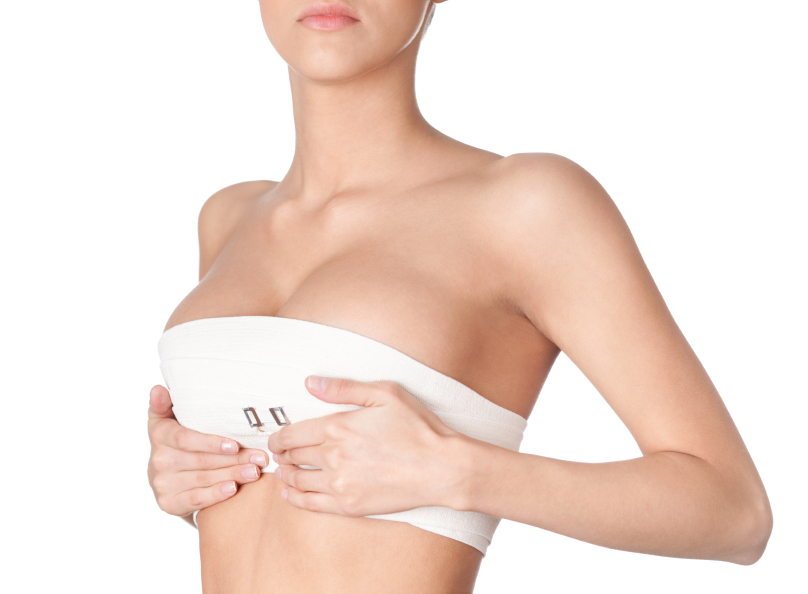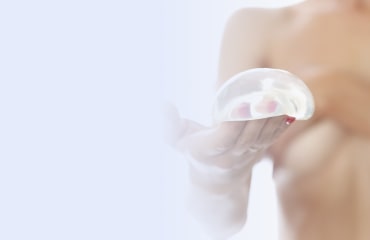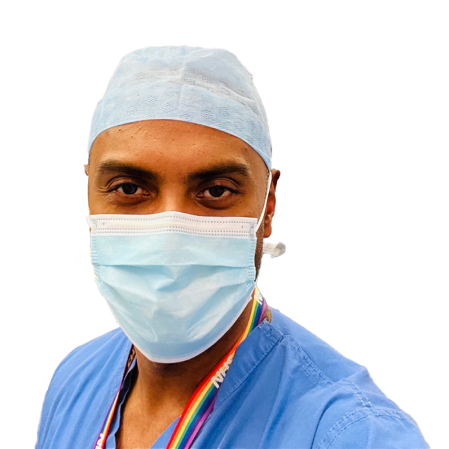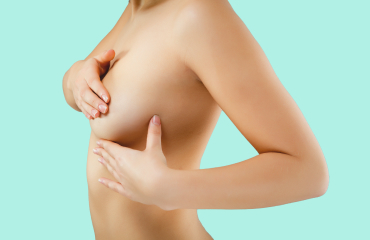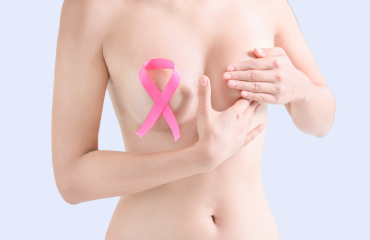Whilst a breast operation maybe a relatively straightforward procedure, it is still a strenuous time for the patient. The surgery will expend your energy levels and you will need lots of rest and downtime in order to assist in your recovery.
We’ve put together a list of some do’s and don’ts so that you can avoid any issues that may hinder your healing journey. Of course your surgeon should also advise you on following these steps.
What not to do when having breast surgery
It won’t be long before you can get back to living your normal life after having breast surgery, however there are some things that you should avoid pre and post op, in order to ensure that you recover fully.
Don’t smoke tobacco products
Adequate blood flow to surgery wounds is essential for aiding the healing process. The nicotine and carbon monoxide found in tobacco products limits your blood flow and it could have devastating consequences for the results of your breast surgery.
In the worst case scenario, tissue death can occur which could cause your nipples to become discoloured and eventually fall off. In order to have the lowest risk of complications related to smoking, it is advised that you quit smoking at least two months before the surgery and at least one-month thereafter.
Don’t do any heavy lifting
Try to avoid taking on any strenuous activities that require heavy lifting. Not only will it exert your energy levels, it could also cause pain and potentially damage your stitches and effect the final cosmetic result. It’s important to rest post-op and allow yourself time to heal.
Don’t go swimming following breast surgery
Swimming is also another major no-no when recovering from breast surgery, it is a strenuous exercise and you must be fully healed before exerting yourself. The water may also increase the risk of infection and potentially damage your stitches, so we would recommend avoiding swimming, bathtubs, jacuzzis and hot-tubs for at least 2-3 weeks.
Don’t drink alcohol
You should avoid drinking alcohol for at least a week leading up to your surgery and at least 2-3 weeks post-op. Alcohol thins the blood, which means excessive bleeding is more difficult to stop during the surgery. It will also hinder the healing process potentially leading to prolonged bleeding and/or infections.
Alcohol will also reduce the effectiveness of the anaesthesia and make it more difficult for the anaesthetist to estimate the correct dosage. Both the surgeon and anaesthetist may refuse to perform the surgery if they suspect alcohol is in your system.
In addition to the in-surgery risks, alcohol is also very dangerous and potentially lethal when combined with painkillers or antibiotics, so it’s best to wait until you’re fully healed before indulging in an alcoholic beverage.
What to do when recovering from breast surgery
The following advice will help assist your healing journey when you are recovering from breast surgery.
Do wear your compression bra following breast surgery
Your compression bra is a specially designed bra that supports your breasts during their recovery. You should aim to wear it 24/7 for upto 6 weeks, following the breast surgery and only take it off to shower.
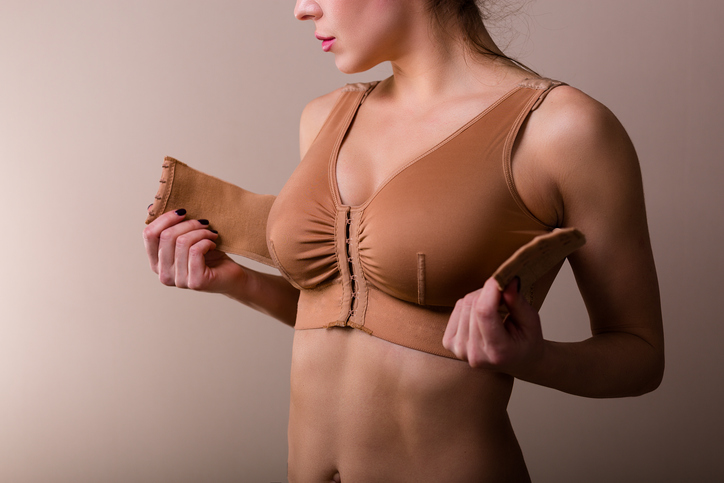
Although it’s not of the Victoria Secret style, the compression bra helps keep your breasts in place so that they can heal in the desired position. Avoid wearing any bras that have an underwire in them as this can affect the delicate state that your breasts are in following the procedure.
Do lie on your brack
If you have had a breast augmentation, your breast implants will need time to settle into place, you should avoid lying on your stomach or side in case this alters the final position of your breasts implants. For all types of breast surgery, it is recommended that you lie on your back when resting, as this will help avoid discomfort and ease pain.
Do eat a balanced diet
Your body will need an adequate supply of nutrients and calories in order to assist in the healing process. You should aim to incorporate lots of fruits, vegetables, proteins and healthy fats into your diet following the surgery.
Do ask your surgeon any questions you may have
Having breast surgery is a unique procedure and one that not many patients are familiar with. You should ask your surgeon any questions that you may have leading up to the surgery and post-recovery. Your surgeon is there to help you and reassure you throughout the whole breast surgery procedure.
Do take it easy
You might have booked some time off work following your procedure, but it’s not a time to get caught up with household chores, it is a time to rest and recover. Breast surgery is a major procedure and it will take its toll on your body. You need time to regain your strength and heal, you should avoid any exercise, strenuous activities and only pitter-patter around your home.
It is also natural to feel some pain and discomfort following your procedure, you can manage that pain at home with prescribed painkillers or over-the-counter medication, your surgeon will advise you on the dosage you should take.
Breast surgery recovery
Recovering from breast surgery is a lengthy process and you must be patient with your healing journey. It is important to not overexert yourself and allow your body time to recover and regain your strength. Follow these do’s and don’ts for a smooth healing process so that you can enjoy your breast surgery results.

